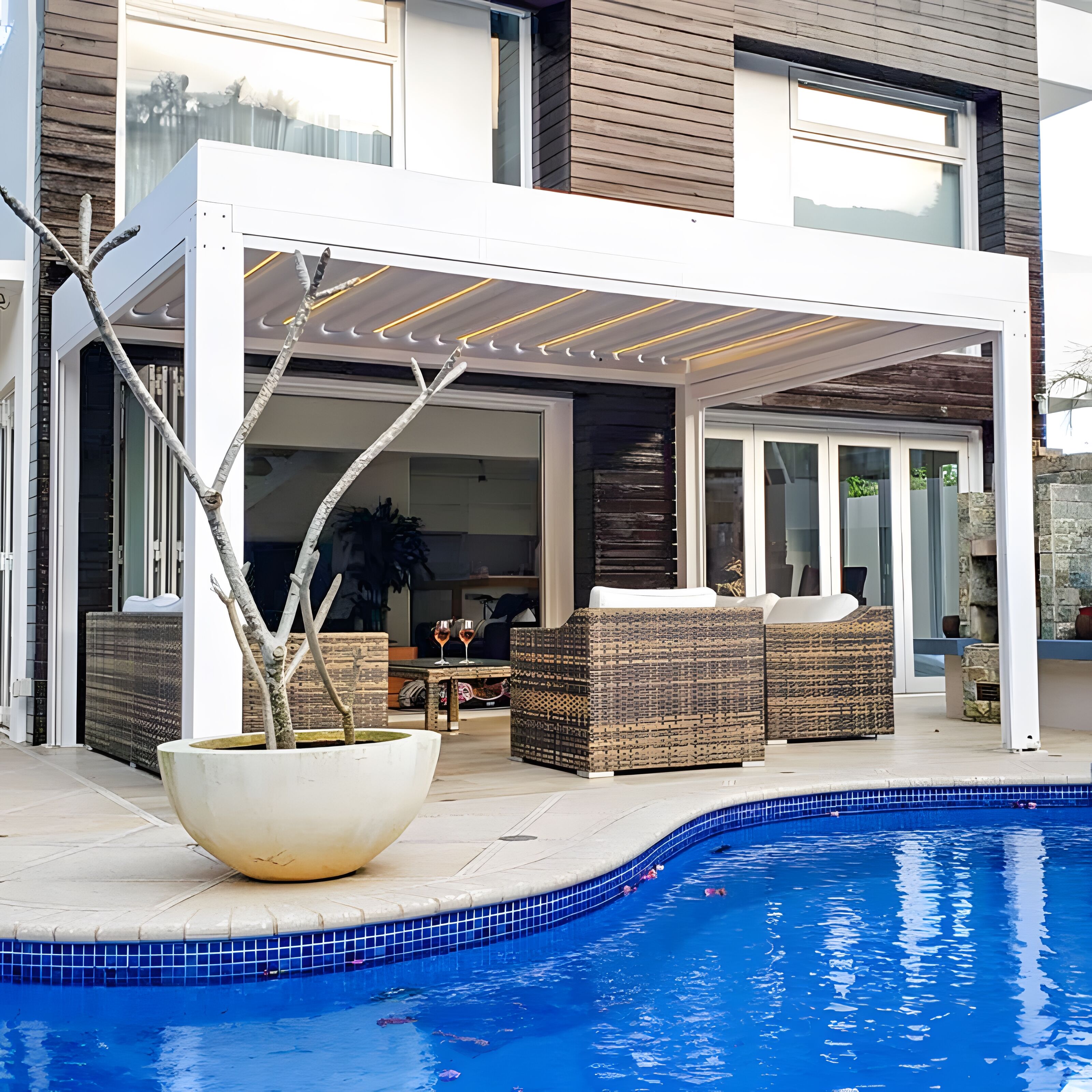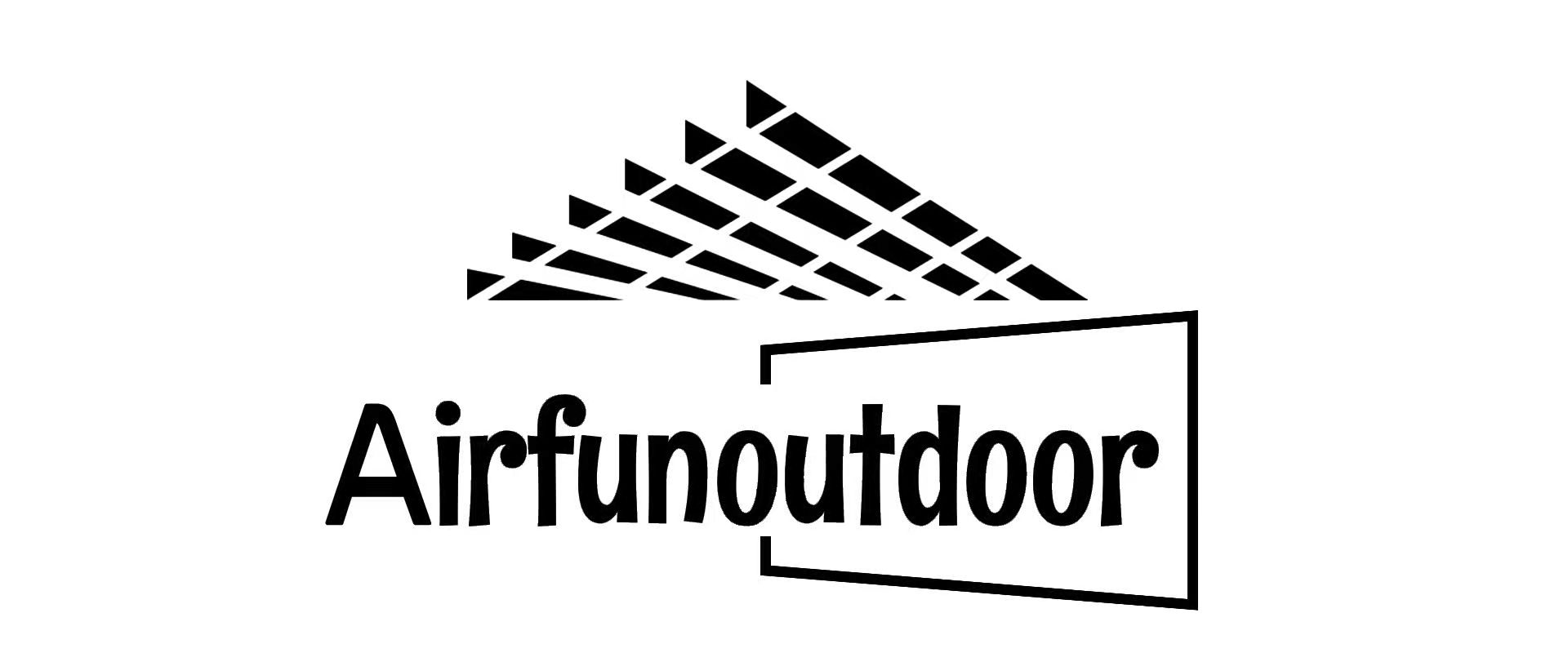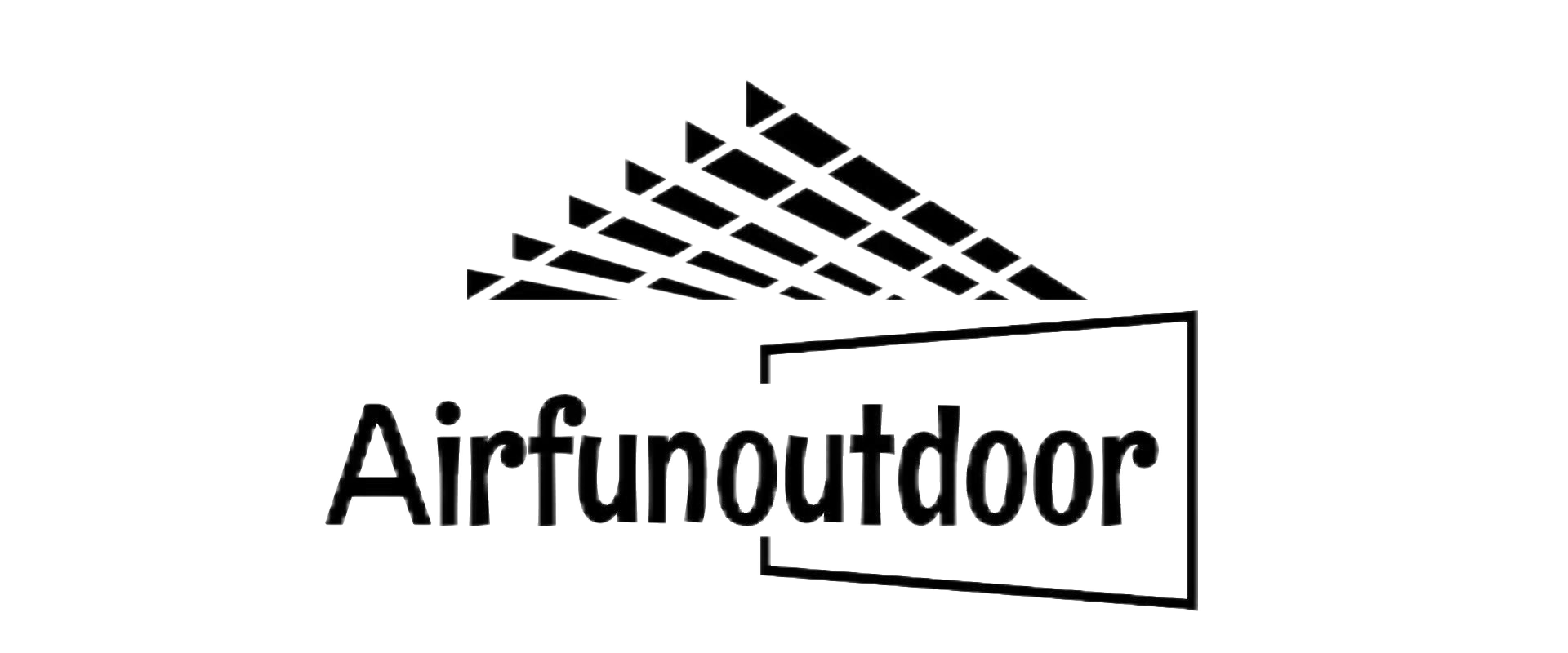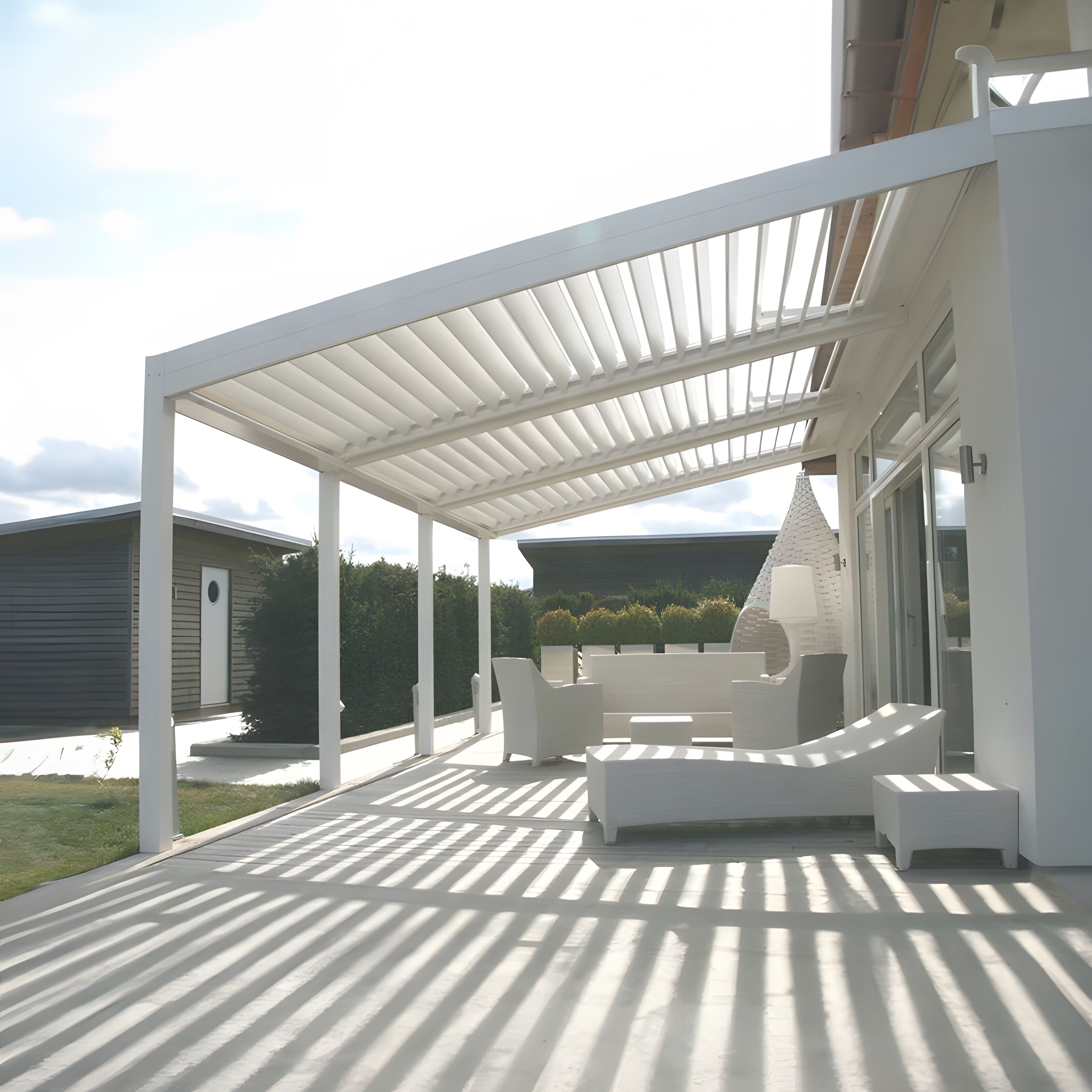Can Garden Pergolas Increase Your Property Value?
A garden pergola is often viewed as a charming addition to outdoor spaces, but many homeowners find themselves wondering: does it actually have the potential to boost property value? The answer isn’t a simple yes or no—it hinges on a variety of factors, ranging from the design and quality of the structure to how well it harmonizes with the home’s overall aesthetic. When thoughtfully planned and executed, a garden pergola can enhance curb appeal, expand the usable outdoor living area, and make a property far more attractive to potential buyers. However, a poorly chosen or executed pergola might not deliver the desired results. Let’s take a deeper dive into how this versatile structure can impact your home’s value—and when it might fall short of expectations.
The Appeal of Enhanced Outdoor Living
In today’s real estate market, modern homebuyers are increasingly prioritizing outdoor spaces that function as seamless extensions of the home. A well-designed garden pergola perfectly fits this bill by creating a defined area that can be used for relaxation, dining, or entertaining. Unlike a bare, empty yard that can feel unfinished and uninviting, a garden pergola adds purpose to the outdoor space, making it much easier for buyers to envision themselves actually using the area.
In competitive housing markets, where homes with standout features tend to sell faster and for higher prices, a garden pergola can be a key differentiator. It sends a clear signal that the outdoor space has been thoughtfully curated and cared for, not just maintained at a basic level. For instance, a pergola equipped with built-in seating, string lights, or climbing plants creates a “move-in ready” outdoor oasis—a highly desirable selling point that can easily justify a higher asking price. Buyers are often willing to pay more for homes that require less work to personalize, and a garden pergola eliminates the need for them to go through the hassle of planning and installing such a structure themselves. This convenience factor alone can make a property more appealing in a crowded market.
Curb Appeal and Aesthetic Harmony
First impressions are crucial in real estate, and a garden pergola can significantly enhance a home’s curb appeal when it complements the property’s overall style. A rustic wooden pergola paired with a cozy cottage-style house, or a sleek metal pergola alongside a modern, minimalist home, creates a sense of visual harmony that draws the eye and leaves a positive impression. This cohesion makes the entire property feel more polished and put-together, which can directly increase its perceived value.
On the flip side, a poorly designed or mismatched garden pergola can have the opposite effect. A cheap, flimsy structure with rotting wood, rusted hardware, or colors that clash with the home’s exterior can make a property look neglected and unkempt, potentially lowering its value. The key here is to invest in a garden pergola that aligns with the home’s architecture and existing landscaping. Opting for high-quality materials—such as cedar, redwood, or powder-coated metal—and ensuring clean, precise construction signals attention to detail, a trait that buyers highly appreciate and are often willing to pay more for.
Return on Investment: When It Counts
While a garden pergola has the potential to boost property value, the return on investment (ROI) can vary widely. In general, outdoor home improvements tend to yield between 50-80% ROI, and a well-built garden pergola typically falls within this range. However, several key factors influence exactly how much value it adds:
Location: In regions with mild climates, where outdoor living is a year-round activity (such as the southern United States, coastal areas, or parts of California), a garden pergola holds significantly more value. Buyers in these areas prioritize outdoor spaces as an extension of their living area, making a pergola a highly sought-after feature that can command a premium.
Quality: A DIY pergola made from low-grade materials, such as pressure-treated pine that’s prone to warping or cheap metal that rusts easily, may not add any value at all and could even be seen as a liability. On the other hand, a professionally built structure using durable materials like cedar, redwood, or high-quality powder-coated aluminum can increase a home’s worth by several thousand dollars. The craftsmanship and materials used directly impact the perceived value of the pergola.
Functionality: A garden pergola that serves multiple purposes—such as shading a patio, supporting climbing plants that add beauty and privacy, or even housing an outdoor kitchen or grill area—adds more value than a purely decorative one. Features like retractable canopies for added weather protection, integrated lighting for evening use, or built-in planters enhance its functionality, making it a more versatile and appealing space for potential buyers.
In upscale neighborhoods, where homes have larger budgets for upgrades and luxury features, a high-end garden pergola can be positioned as a luxury amenity that justifies a higher price tag. In more modest areas, it may still add value by making the home more competitive in the market, even if the monetary increase is not as substantial. The key is that it makes the property stand out in a positive way among similar homes.
When a Garden Pergola Might Not Add Value
Not all garden pergolas are created equal, and some may fail to boost property value—or even decrease it. It’s important to avoid these common pitfalls:
Overbuilding: A massive pergola that dominates a small yard can make the outdoor space feel cramped and claustrophobic, significantly reducing its appeal. The size of the pergola should be proportional to the yard, complementing the space rather than overwhelming it.
Poor Maintenance: A garden pergola with rotting wood, rusted metal components, or overgrown plants that are damaging the structure sends a signal of neglect. Regular upkeep—such as sealing wood annually to prevent rot, painting metal to avoid rust, and trimming climbing vines to keep them from causing structural damage—is essential to preserve its value and appearance.
Trendy vs. Timeless: Fad-driven designs, such as overly ornate carvings, bold and unconventional colors, or unusual shapes, may deter buyers with different tastes. A classic, neutral garden pergola with clean lines has much broader appeal and is more likely to stand the test of time, ensuring it remains a valuable feature for years to come.
FAQ: Garden Pergolas and Property Value
1,Do all garden pergolas increase property value?
No. Only well-built, aesthetically cohesive pergolas constructed with quality materials add value. Cheap, poorly maintained, or mismatched structures may not boost value and could even decrease it by making the property look unappealing.
2,How much value does a garden pergola typically add?
On average, a high-quality garden pergola can add anywhere from \(3,000 to \)10,000 to a home’s value, depending on factors such as location, size, and the materials used. In highly desirable areas with a strong emphasis on outdoor living, the increase may be even higher.
3,Is a wooden or metal garden pergola better for value?
Both can add value if they match the home’s style. Wooden pergolas made from durable woods like cedar or redwood appeal to buyers who prefer a natural, rustic aesthetic, while metal pergolas (such as those made from aluminum or steel) are well-suited to modern homes and often require less maintenance, which some buyers prioritize for convenience.
4,Should I install a garden pergola before selling my home?
If your home lacks distinctive outdoor features and you’re in a market where outdoor living is highly valued, installing a garden pergola can make it more competitive. However, it’s crucial to ensure it’s professionally built and matches the home’s style to maximize its impact on potential buyers.
5,Can a garden pergola decrease property value?
Yes, if it’s poorly constructed, in a state of disrepair, overgrown, or clashes with the home’s design. A neglected or mismatched pergola can make the property look unkempt or poorly planned, which can lower a home’s perceived value in the eyes of buyers.




